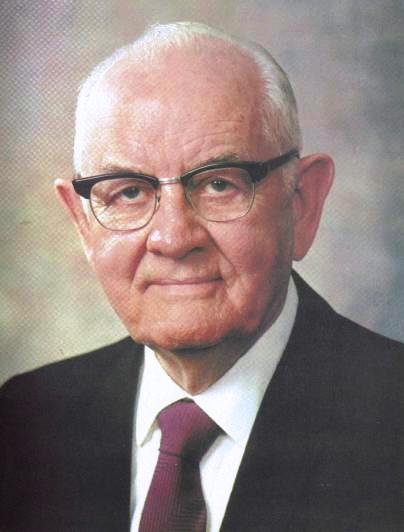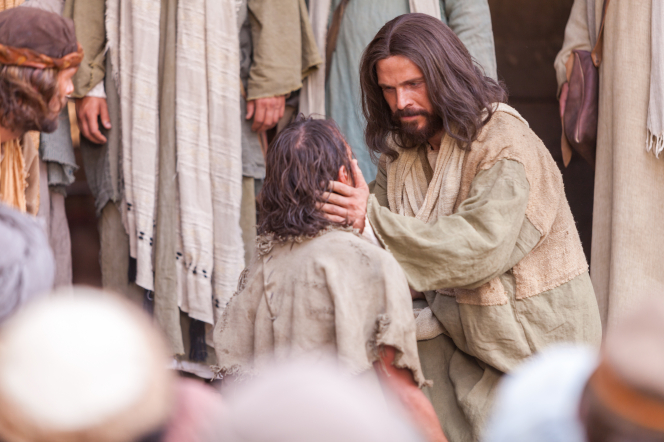I am interested in the topic of leadership, and I have reviewed a few books and chapters about leadership in this blog before, all from secular sources or from Christian leadership writers.

Yesterday I thought about looking for something different, something more spiritual, and decided to do a search in the website churchofjesuschrist.org (old lds.org). I searched for the keywords “Jesus” and “leader”, and on the top of the list I found a powerful article from a prophet of God.
It is titled Jesus: The Perfect Leader by President Spencer W. Kimball. It is an article created from an address delivered to the Young Presidents organization, Sun Valley, Idaho, on 15 January 1977. It is an old article, but it’s timeless.

This article is a “classic” President Kimball, a wonderful inspiring article about true leadership. It is hard to make choices about what to include and what to comment about, but I will try. I invite those who are interested, should read the full talk, ponder it, and try to apply its ideas in their own lives. I will split my article in three parts, since there is so much value in this talk and I want to keep each post relatively short. This is the first part. This is the link to the second part and this is the link to the third part. All quotes without specific attribution are from President Kimball.
Fixed principles
Jesus knew who he was and why he was here on this planet. That meant he could lead from strength rather than from uncertainty or weakness.
We are mortal, and while we are also children of God, we are not “the” Son of God. Our understanding of who we are and what exactly is our mission on this earth is limited and comes to us in baby steps. Therefore, when we lead, our position is never as strong as Jesus’.
We all have at least some uncertainty or weakness. Even prophets, of future prophets, feel this uncertainty at times. Elder Wendell J. Ashton in his talk Unchanging Principles of Leadership said the following about Elder Hinckley, when he was not yet the President of the Church, but already a seasoned General Authority:
Last week several of us were in the office of my former missionary companion, Elder Gordon B. Hinckley, shortly after he had received his notice from the First Presidency as to when he would speak at this great conference.
Elder Hinckley turned serious and almost wan, then said, “You know, this frightens me terribly. It does every time general conference approaches.”
Elder Hinckley has been coming up here twice a year and performing ably for thirteen years. But can you see how one of us feels coming to this world-conference pulpit for the first, and perhaps only, time?
If Elder Hinckley after 13 years of speaking a General Conference was still frightened, then we should not be surprised if we are never completely free of uncertainty and weakness. But if we study, pray and live righteously, over time, we can also grow in the understanding of “who we are and why we are here on this planet”, and obtain enough strength and self-understanding to become better leaders, and guide others from a better position.
Jesus operated from a base of fixed principles or truths rather than making up the rules as he went along. Thus, his leadership style was not only correct, but also constant. So many secular leaders today are like chameleons; they change their hues and views to fit the situation.
How needed is this principle! Since President Kimball gave his talk I think that things have gotten even worse in the political arena and in other areas. But what is most useful for us is not pointing out other people’s weaknesses, but our own. How many time we are like chameleons? Leaders who want to emulate Jesus are not guided by political expediency or by the desire to keep power at all costs.
Jesus said several times, “Come, follow me.” His was a program of “do what I do,” rather than “do what I say.” His innate brilliance would have permitted him to put on a dazzling display, but that would have left his followers far behind. He walked and worked with those he was to serve.
There is more than just the obvious reason for a leader to do what he asks his followers to do. Not only he shows humility, honesty and consistency by doing what he asks others to do, but he also help them by “don’t leaving his followers behind”. By accepting to work together with them as an equal, putting himself at their same level, and not just pontificating from a high pedestal, he shows true charity for his followers.
Understanding others
Jesus was a listening leader. Because he loved others with a perfect love, he listened without being condescending. A great leader listens not only to others, but also to his conscience and to the promptings of God.
In an effort to be successful, many leaders start chasing praises and popularity instead of what is right. By so doing, they cease to be effective leaders and they show that their ultimate goal is not the good of their followers, but mostly their own.
Because Jesus loved his followers, he was able to level with them, to be candid and forthright with them. He reproved Peter at times because he loved him, and Peter, being a great man, was able to grow from this reproof.

It is wise but hard to correct and be corrected. The Savior exemplifies in His life how to lovingly correct when is needed. We may feel that it is harder for us sometimes to correct others, since we are not perfect like Him, and so “who are we to judge others?”, or we may be afraid of making a mistake. I believe that it happens to many of us to wonder what to do in certain circumstances. We often allow our insecurities or desire to be loved to interfere with the needed correction, but He has shown us how to do it. Being inspired by the Holy Ghost is the key to make the right calls, as we read in Doctrine and Covenants 121:43,
Reproving betimes with sharpness, when moved upon by the Holy Ghost; and then showing forth afterwards an increase of love toward him whom thou hast reproved, lest he esteem thee to be his enemy;
Selfless leadership
The Savior’s leadership was selfless. He put himself and his own needs second and ministered to others beyond the call of duty, tirelessly, lovingly, effectively. So many of the problems in the world today spring from selfishness and self-centeredness in which too many make harsh demands of life and others in order to meet their demands. This is a direct reversal of the principles and practices pursued so perfectly by that perfect example of leadership, Jesus of Nazareth.
Since the early days when I became a member of the Church of Jesus Christ of Latter-day Saints, I began to learn about this important principle. Not that I hadn’t heard about it before, but only after my baptism I started to understand the principle better. Jesus said it beautifully and simply,
If any man desire to be first, the same shall be last of all, and servant of all.
Mark 9:35 – Holy Bible
As president Kimball explains, this is a reversal, where the leader becomes the servant and not the lord over those who are assigned to his care. The Savior was so willing to be the servant of all who gave his life for us. We can surely learn from Him the true meaning of selfless leadership.
Jesus’ leadership emphasized the importance of being discerning with regard to others, without seeking to control them. He cared about the freedom of his followers to choose. Even he, in those moments that mattered so much, had to choose voluntarily to go through Gethsemane and to hang on the cross at Calvary. He taught us that there can be no growth without real freedom. One of the problems with manipulative leadership is that it does not spring from a love of others but from a need to use them. Such leaders focus on their own needs and desires and not on the needs of others.

To be in a position of leadership and power is tempting. History is full of tyrants who dominated by terror or brute force. But even better people, leaders of organizations who honestly try to be good leaders, may easily overstep their boundaries, and become controlling and manipulative in open or subtle ways. President Kimball identifies clearly that our motivation is what will make the difference: do we love people and are we trying to help them? Or do we just want to advance our careers, and take advantage of our role, to get what we want from those who work for us?
Jesus had perspective about problems and people. He was able to calculate carefully at long range the effect and impact of utterances, not only on those who were to hear them at the moment, but on those who would read them 2,000 years later. So often, secular leaders rush in to solve problems by seeking to stop the present pain, and thereby create even greater difficulty and pain later on.
This is one more thing that only the Savior could do perfectly. What we say or do is so limited by our present knowledge and circumstances that we can barely assess the short-term effect on people and situations. Many times we want to solve problems right away because we want the uncertainty or pain to go away, but it is not always possible. Our best option is to rely not only on our best judgment or on good counselors, but especially on inspiration and revelation through the power of the Holy Ghost, who can elevate and perfect what we say or do and get us a little closer to the Perfect Leader.
(to be continued)

Trackbacks/Pingbacks